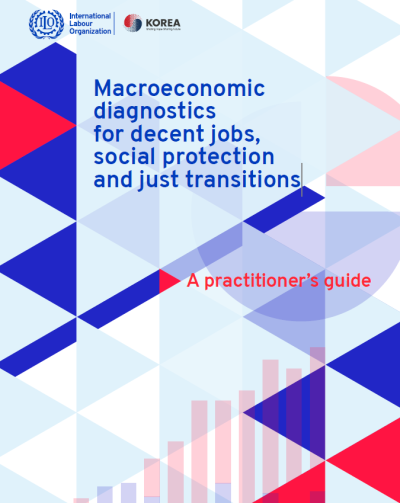The pace of progress on the SDGs in general, and on jobs, social protection and just transitions in particular, has been uneven across countries. Access to decent and productive jobs and social protection continues to elude billions. Sustained progress on jobs, social protection and just transitions cannot be achieved without proactive, engaged macroeconomic policies. Conversely, full and productive employment and social protection are critical to bolstering the capacities of a country as it navigates short-term crises and reduces longer-term vulnerabilities. Global experience and lessons learned from the rise of Asia, from the 2008 global financial crisis or more recently from the Covid-19 pandemic and the impending green transition have exposed the limits of a narrow focus on stability, and highlighted instead the critical role of macroeconomic policies in promoting productive capacities and employment and the extension of social protection and essential services.
This Practitioner’s guide has been developed to assist evidence-based and stakeholder-driven policy dialogue at country level. Finance ministries, central banks and other core macroeconomic players are critical to advancing decent jobs, social protection and just transitions agendas. And equally important is the engagement of labour, social and sectoral ministries, and business and worker representatives in determining fiscal space and other macro-policy choices. The focus is on country-specific and global evidence to inform a broad-based policy dialogue that supports the convergence of the macro and the wider socioeconomic agendas.
